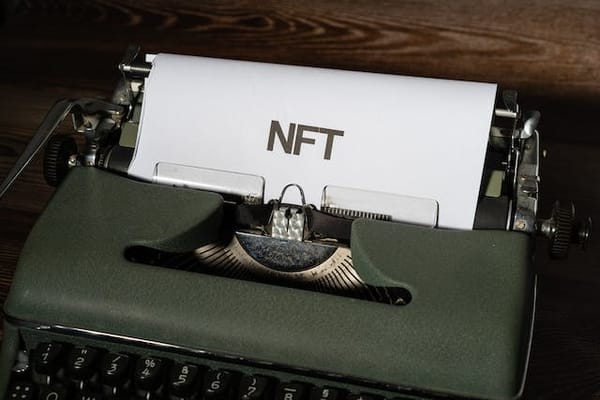Understanding Inflation and Its Impact on Your Finances
Navigate the impact of inflation on your finances with our guide. Understand its dynamics and strategies to protect your wealth against its erosive effects

Inflation is an often-discussed but frequently misunderstood economic concept with a profound impact on the financial landscape. As a vital component of the economy, inflation influences everything from interest rates to consumer spending. This comprehensive guide is designed to help finance enthusiasts, economic students, and investment seekers gain a deeper understanding of the intricacies of inflation and its implications for personal financial management.
Introduction to Inflation
What Is Inflation and Why Does It Matter?
Inflation refers to the general increase in prices of goods and services over a period of time. While this may seem like an abstract concept, inflation has tangible effects that ripple throughout the economy. At its core, inflation erodes the purchasing power of a unit of currency, effectively diminishing the value of money.
Understanding inflation is crucial because it affects every aspect of the economy and, in turn, each individual's financial situation. As a finance enthusiast or someone with a vested interest in smart money management, being inflation-savvy is not only beneficial but essential.

Understanding Inflation
Causes of Inflation
Inflation is not caused by a single factor but is often the result of a complex interplay among numerous economic variables. A few key contributors to inflation can be identified, including:
- Monetary Policy: Changes in the money supply, usually orchestrated by central banks, can lead to inflation if there's more money in circulation than there are goods and services to purchase.
- Cost Increases: Rising production costs can lead to a phenomenon known as 'cost-push' inflation, where businesses pass on their increased expenses to consumers in the form of higher prices.
- Demand Surges: 'Demand-pull' inflation occurs when consumer demand outstrips supply, allowing sellers to raise prices.
Types of Inflation
One-size-fits-all explanations don't work for inflation. Different types of inflation reflect these underlying causes and can manifest in unique ways within the economy. Understanding these types will provide a nuanced view:
- Creeping Inflation: This type describes when the general price level rises steadily over time, typically in low single-digit percentages annually.
- Hyperinflation: An extremely high and typically accelerating inflation rate that rapidly erodes the real value of the local currency, leading to the need for external foreign currency.
- Stagflation: A situation characterized by slow economic growth and relatively high unemployment – or economic recession – along with rising prices, or inflation.
Measurement and Indicators of Inflation
Inflation is gauged using indices such as the Consumer Price Index (CPI) or the Producer Price Index (PPI). These indices track the prices of a predetermined 'basket of goods' over time, which provides a snapshot of how the prices of these goods are changing. The CPI, in particular, is widely regarded as an important economic indicator, influencing investment decisions, monetary policy, and corporate strategies.

Impact on Your Finances
Purchasing Power and the Erosion of Money's Value
The most direct way inflation affects personal finances is through purchasing power. As the cost of living increases, the same amount of money buys fewer goods and services. For savers and those on a fixed income, this means their money may not stretch as far as it used to, impacting their standard of living and potential for savings.
Effects on Savings and Investments
Inflation poses a significant challenge to both savers and investors. For savers who keep money in low-yield accounts, the interest earned may not keep pace with the rate of inflation, effectively reducing the real value of their savings. Investors face a similar dilemma; assets that don't outperform inflation are effectively losing value in real terms.
Impact on Borrowing and Debt
Conversely, inflation can be a boon for borrowers. In an inflationary environment, the nominal value of debts remains constant, while the real value decreases. This means borrowers can repay their loans with currency that has a reduced purchasing power, effectively paying back less in real terms.
Strategies to Mitigate the Impact of Inflation on Personal Finances
In light of inflation's impact, it's imperative for individuals to adopt strategies that account for its presence. These may include:
- Invest in Inflation-Protected Securities: These government or corporate bonds are structured to offer returns that keep pace with inflation.
- Diversification: By spreading investments across various asset classes, investors can mitigate the risk associated with inflation.
- Invest in Real Assets: Real estate, commodities, and precious metals often serve as inflation hedges, as their values tend to increase with or outpace inflation.
- Negotiate and Reprice Contracts: For businesses, renegotiating long-term contracts or setting up pricing strategies to account for inflation is a proactive way to manage the impact.
Inflation and the Economy
Relationship Between Inflation and Interest Rates
Inflation is closely linked to interest rates, with central banks often using the latter as a tool to manage the former. When inflation is high, they may increase interest rates to encourage saving and reduce borrowing, thus controlling the money supply. Conversely, in times of low inflation, interest rates are typically lowered to stimulate spending and investment.
Effects on Businesses and Consumers
High and unpredictable inflation can pose challenges for businesses, especially those with fixed prices and slow-moving supply chains. For consumers, inflation can create uncertainty and reduce discretionary income, affecting spending patterns and overall economic health.
Government Policies to Control Inflation
Governments and central banks employ various policies to control inflation, such as monetary policy adjustments, fiscal measures, and wage and price controls. These interventions aim to stabilize the price level and ensure sustainable economic growth.
Conclusion
A solid grasp of inflation and its interplay with personal finances is indispensable for effective financial planning and decision-making. With an eye on inflation, individuals can enhance the resilience of their investment portfolios and make prudent decisions in both bullish and bearish economic conditions. As the financial landscape continues to evolve, staying informed about inflation will remain a cornerstone of successful financial management.



